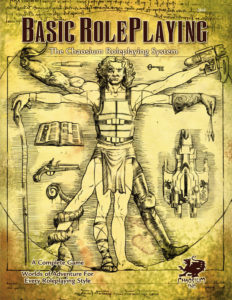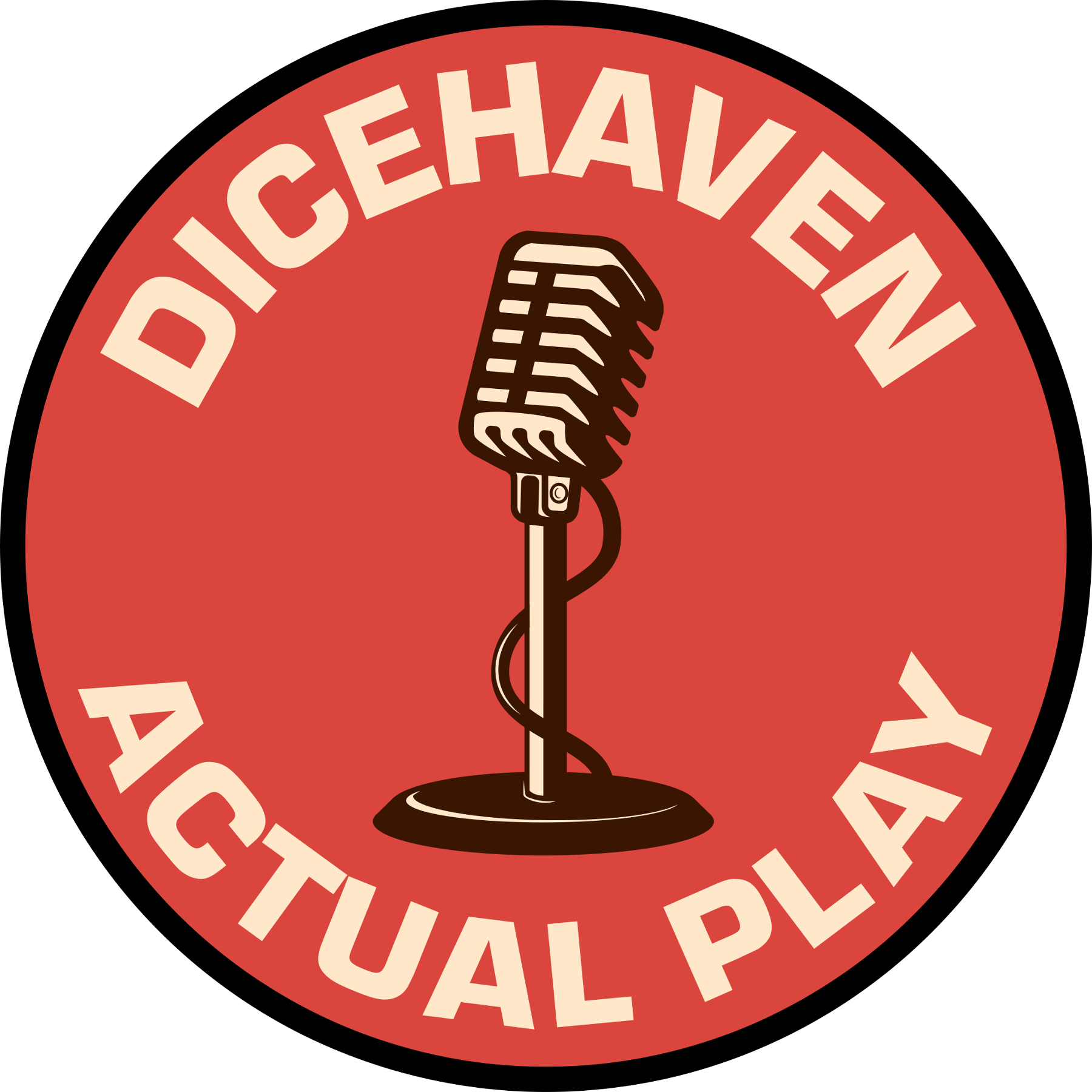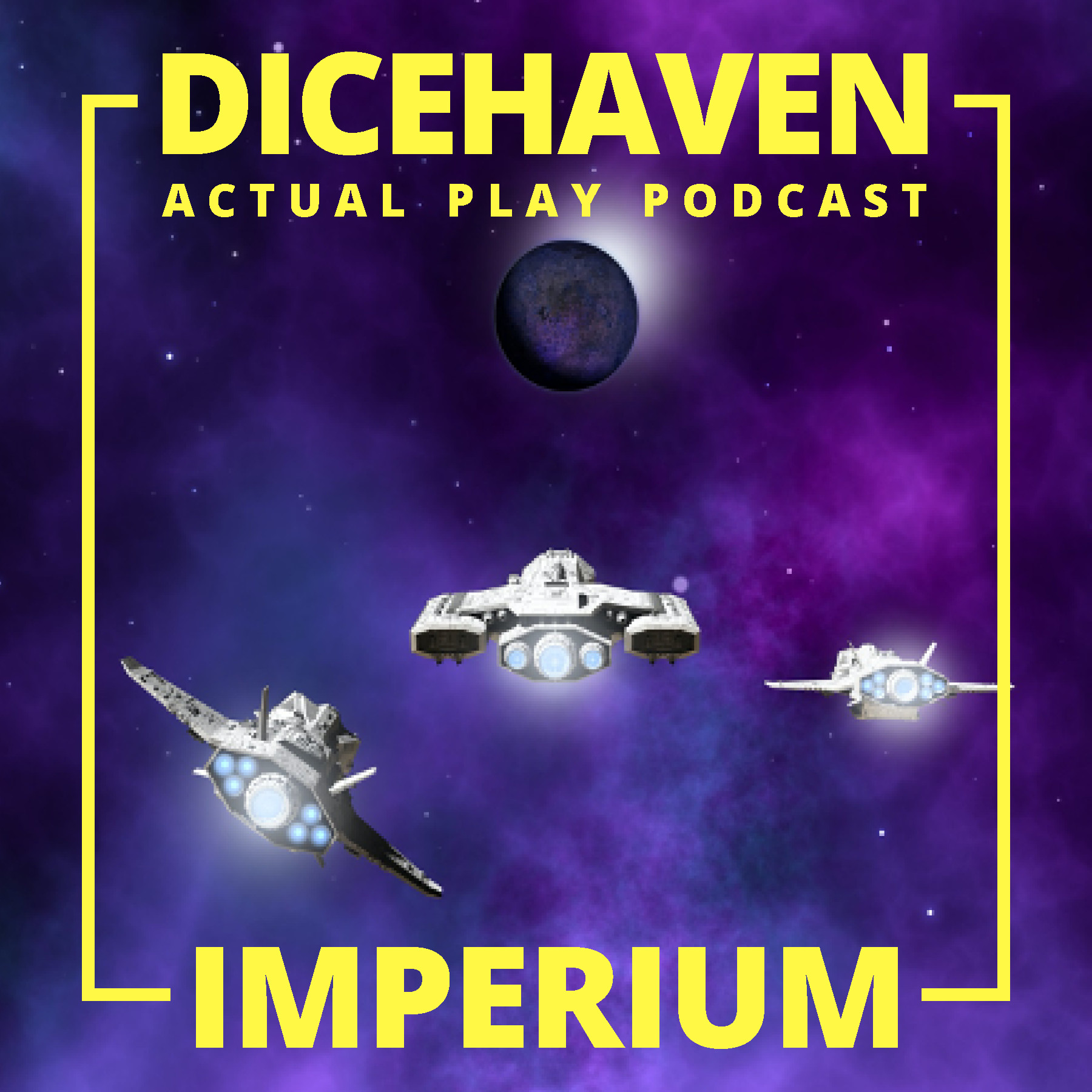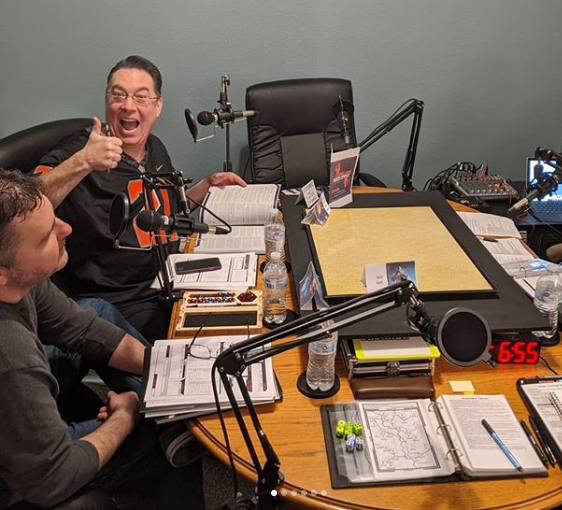 Ken Hite (he’s worked on so many RPGs I’ve lost track; LUG Star Trek is the one I most recall) wrote a review of BRP (Chaosium’s d100 system-neutral game) a few years back. I’ve copied it here and highlighted a few points. I need to check out the ‘Passions’ mechanic.
Ken Hite (he’s worked on so many RPGs I’ve lost track; LUG Star Trek is the one I most recall) wrote a review of BRP (Chaosium’s d100 system-neutral game) a few years back. I’ve copied it here and highlighted a few points. I need to check out the ‘Passions’ mechanic.
Dry Bones Gonna Rise Up
Consider this the most comprehensive playtest review in history. I’ve probably logged more hours playing one or another form of Chaosium’s Basic Role-Playing engine — the core of Call of Cthulhu, RuneQuest, Nephilim, Stormbringer, Superworld, and Ringworld, to mention only the games that I’ve played with it — than every other RPG system combined. Including, I should add, using it as a “generic” engine for games from wild multiversal action to steampunk to Westerns to space opera to, well, occult horror investigation. I’ve also, for what it’s worth, written plenty of rules for it professionally, mostly for Nephilim and for Mongoose’s latest iteration of RuneQuest.
So I was glad to see that Sam Johnson and Jason Durall did a pretty darn good job of creating a core book for the game I’ve been running, off and on, for the last 25 or so years. Basic RolePlaying: The Chaosium Roleplaying System (399 pages, black-and-white softcover, $39.95) takes all those Chaosium core books and filters them down into one generic RPG system.Surely everyone knows by now how BRP works: human character stats go from 3-18 (the new book offers point-builds as well as random rolls), skills go from 0% to 100% (the new book has rules for skills over 100% now), you roll percentile dice under your skill, and bang. Armor subtracts from damage, and you can get as crazy as you want with hit locations, but it’s still basically “d100 and a cloud of dust” with characters that are almost always gratifyingly fragile in combat. That, and the robust skills engine (this book’s skill list is a macedoine of Chaosium’s greatest hits), let the game explore other sorts of scenes besides fights. Magic? Depends — this book has superpowers, mutations, magic (a laRQ), sorcery (a la Stormbringer or CoC), or psionics (a la ElfQuest). Pick and choose, or mix and match. Gear, likewise; monsters, again likewise, taken from other Chaosium games and generified. Most of the specific Chaosium games have specialized mechanics and rules; most of them are somewhere in here, usually as optional rules. (The best? The passions mechanic from Pendragon. Use it.) But the core is the same game we’ve all been playing since 1978, when Steve Perrin looked in his white box and said “I’ll bet I could design better rules than this.”
In my experience, BRP remains excellently suited for any game in which combat is dangerous and something important reliably happens outside combat. It breaks down for demigods, but it breaks cleanly — there’s not enough rules to become cumbrous. BRP is also excellently suited for the modular attachment of any other, non-Chaosium game mechanics that you happen to like: at one time or another, I’ve added Ars Magica magic,GURPS advantages and disadvantages, and the old Marvel SuperHeroes superpowers (I’m not a fan of percentile superpowers) to BRP with less trouble than it took to type this sentence. (Not for the same game, I hasten to add. Although…) In short, it’s the cleanest, simplest, easiest generic system around. This is not to berate baroque (GURPS), complex (HERO), challenging (FUDGE) generic systems — but it’s nice to have a really good loaf of white bread, too.
And now it’s in one book, not 20.
(Source)




Recent Comments